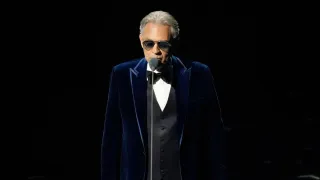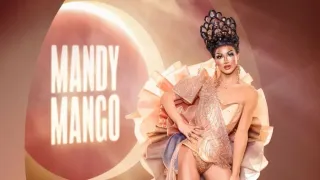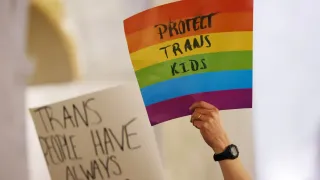February 28, 2023
Spotify GLOWs for LGBTQ Artists
Laura Moreno READ TIME: 4 MIN.
Long before artists like Elton John and Liberace hit the scene, LGBTQ artists have driven innovation, shaped culture and made major lasting contributions to the history of music, and always have. In celebration of this fact, Spotify introduced GLOW, a new global music program that amplifies LGBTQ artists and creators all year round.
The new GLOW hub includes not only music, but podcasts, news, and an expansive selection of themed playlists of old and new music that set just the right mood. Choose from an impressive array of playlists that feature trans artists, Black artists, soundtracks, club dance music, a multiplicity of "break up playlists," and much more.
I was pleasantly surprised to find the GLOW hub also includes beloved oldies like the albums of the popular 1980s Spanish group Mecano, for example.
"We recognize the power of our platform to elevate, uplift, and spotlight voices that have been historically marginalized, and we're committed to using it to drive cultural change," Spotify announced.
In addition, the Swedish company Spotify has declared its commitment to the LGBTQ community by offering full support that will provide expert "editorial and partnership capabilities, marketing support, and charitable giving to organizations like QORDS, Astrea, Black Trans Femmes In The Arts, ChamberQueer, Allgo, It Gets Better, Youth Music, and Casa Chama."
Progress Out of the Gate
In the short time since Spotify launched GLOW, the platform has already seen a significant boost to the careers of the featured LGBTQ artists. Reportedly, playlists in the main hub have already registered over 6.9 million streams and counting, offering listeners the chance to discover upcoming new LGBTQ talent.
Recently, GLOW hosted its first songwriting workshop session in Los Angeles. It included a panel discussion of featured queer musicians Leland, Isaac Dunbar, Miki Ratsula, and Arlissa, along with Spotify Artist Partnership Team Manager Lisa Ritchie.
Leland, whose work has been featured on "RuPaul's Drag Race" among other places, talked about his initial trepidation that writing songs about same-sex relationships could get him banned from being played on the radio. As the audience watched, Leland composed a song together with Isaac Dunbar, who gained fame by singing covers of well-known songs of gay icons.
It took a few tries, but in short order the pair had successfully laid down a minimalist beat, some fancy guitar riffs, and had collaborated on some catchy lyrics to demonstrate the song-writing process.
The hope is that such song-writing workshops sponsored by Spotify's GLOW will help hone the skills of talented up-and-coming LGBTQ artists.
Furthermore, Leland expressed the hope that the other music industry players would take note of GLOW. "I hope they're inspired to put queer artists in the budget at the top of the year," he said.
Surveillance & Abuses
Up until now, Spotify has earned a bad reputation with musicians for good cause. As has been widely reported, in 2014, Taylor Swift removed her entire catalogue from Spotify stating, "Music should not be free." This was in protest of their history of exploiting artists by underpaying them and concealing their payment structure. Spotify has even been caught illegally engaging in "payola," the old practice of pay-for-play that many in the industry thought had disappeared from the industry.
Plus, there is a worrying new trend. Digital platforms, and Spotify in particular, are surveilling their listeners while claiming in public that they are not able to illegally spy on your conversations. But now we know this is not true.
In 2021, Spotify filed a patent for an illegal unconstitutional technology: The artificial intelligence Spotify utilizes not only spies on listeners' conversations, but also conducts emotional surveillance and has the capability to manipulate the moods of listeners. This capability exists even though there is no need for such invasive unconstitutional technologies.
Transgender/genderqueer singer-songwriter-activist Evan Greer, who is also Deputy Director of www.FightfortheFuture.org, wrote the song "Surveillance Capitalism," part of the album "Spotify is Surveillance," to raise awareness of Spotify's privacy violations and emotion surveillance and manipulation. Fight for the Future, a non-profit organization that fights for our digital rights, is demanding that Spotify abandon its patent.
Objectively, in weighing the pros and cons of what Spotify offers listeners, buyer beware. The platform provides an intuitive easy-to-use experience with excellent features. But for music lovers who value their privacy and/or quality of sound coming through the ear buds, other digital platforms offer a better, less exploitative user experience.
Spotify has simultaneously launched Frequency, a new hub that celebrates Black artists, culture and community.
Spotify's GLOW is available at: www.open.spotify.com
Help keep the Bay Area Reporter going in these tough times. To support local, independent, LGBTQ journalism, consider becoming a BAR member.






